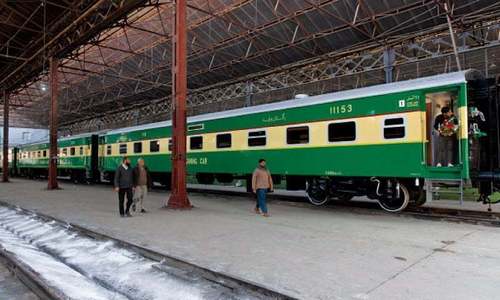ISLAMABAD: The office of the Auditor General of Pakistan has pointed out Rs1.3 billion irregularities in the financial affairs of Islamabad Capital Territory (ICT) administration.
According to the audit report of the ICT administration, the chief commissioner approved Rs1.1 billion for the second revised PC-1 for the “construction of Mazar of Hazrat Barri Imam (RA) Noor Pur Shahan, Islamabad” despite the fact that he “was not competent to accord approval.”
The auditors pointed out that according to a Finance Division office memorandum, development schemes costing up to Rs500 million shall be sanctioned by the Central Development Working Party (CDWP) and the Executive Committee of the National Economic Council (Ecnec) was empowered to sanction projects beyond this limit.
According to the ICT’s response to the audit para, the prime minister had constituted a development and management committee of Barri Imam Complex under the Senate chairman. All the formalities were completed under the committee. Moreover, the project was self-financed by Auqaf department through the Shrine Fund and there was no Public Sector Development Programme (PSDP) allocation.
The departmental accounts committee (DAC) directed the ICT administration to stop this practice and get the ex-post facto approval/regularisation of the PC-1 within two months.
Audit report says Central Development Working Party can sanction schemes worth up to Rs500m only
According to the audit report, the chief commissioner office in the year 2018-19 was maintaining 22 vehicles and incurred an expenditure of Rs4 million on POL and repair during the same financial year.
The list of vehicles provided for audit included 14 vehicles while the management maintained 22 vehicles. The management did not provide the strength of sanctioned vehicles due to which audit could not authenticate the expenditure on these vehicles.
The ICT administration, on the other hand, replied that all these vehicles were in the use of authorised officers.
The departmental accounts committee, however, directed the chief commissioner office to obtain fresh authorisation of vehicles from the cabinet division.
Likewise, the deputy commissioner office was maintaining a fleet of 61 vehicles that incurred an expenditure of Rs16.5 million.
The audit observed that the list of vehicles provided to the auditors included details of 24 vehicles only but the management was operating 37 additional vehicles.
The auditors claimed that the additional cost of POL and repair work was Rs2.6 million.
The DC office replied that the sanctioned vehicles were 24 which were under the use of the office. It, however, said during by-elections in 2018-19, the additional vehicles were used. However, these were not officials but private cars, it said.
The audit further pointed out that the Auqaf department in violation of Finance Division’s policy invested Rs83.7 million in term deposit receipts (TDRs) with the National Bank of Pakistan in different financial years. Similarly, the management made another investment of Rs20 million in the Riba free term deposit (Mudaraba) with Emirates Global Islamic Bank.
The audit observed that approval of the controlling ministry of interior was not obtained to determine the working balance limit and to invest or reinvest the amount.
Published in Dawn, March 26th, 2021










































Dear visitor, the comments section is undergoing an overhaul and will return soon.